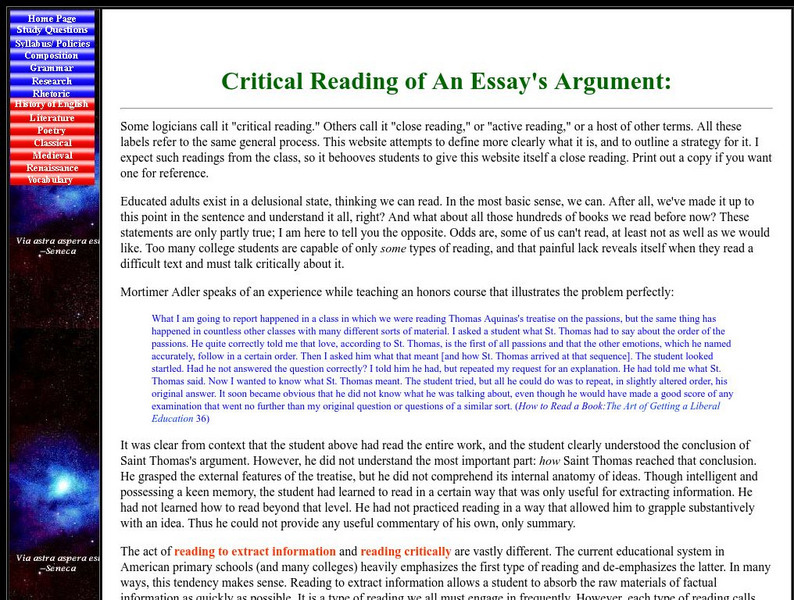Curated by
ACT
Extensive examination of what it means to critically read an argument. This process is sometimes called "critical reading," or "close reading," or "active reading." First the differences between reading to extract information and reading critically are discussed. It then describes five general stages of reading needed for reading critically, including pre-reading, interpretive reading, critical reading, synoptic reading, and post-reading. Each of these are extensively discussed. CCSS.ELA-Literacy.CCRA.R.8
3 Views
1 Download
CCSS:
Adaptable
Concepts
Additional Tags
analyzing arguments, analyzing development of ideas/claims, analyzing literature, claim, critical reading of an essay's argument, delineate an argument, evaluate an argument, higher order thinking, interpretive reading, post-reading, pre-reading, synoptic reading, thinking critically, ccss.ela-literacy.ccra.r.8, ccss.ela-literacy.ccra.r.8 delineate and evaluate the argument and specific claims in a text, carson - newman college: critical reading of an essay's argument ccss.ela-literacy.ccra.r.8, critical reading of an essay's argument ccss.ela-literacy.ccra.r.8, delineate and evaluate the argument and specific claims in a text, dr. l. kip wheeler, ri.9-10.5 ideas/claims developed, argument
Classroom Considerations
- Knovation Readability Score: 3 (1 low difficulty, 5 high difficulty)
- This resource is only available on an unencrypted HTTP website.It should be fine for general use, but don’t use it to share any personally identifiable information
